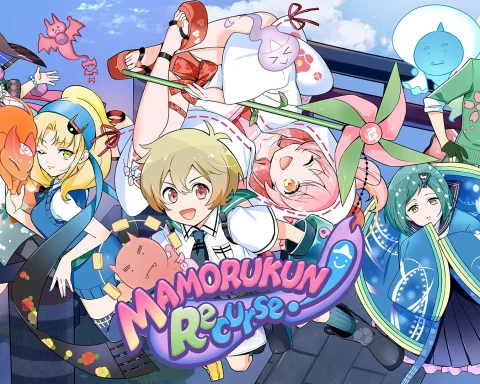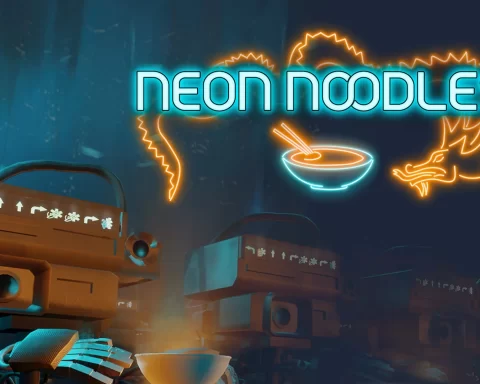Opinion by Matt S.
Earlier this week, the World Health Organization (WHO) formally defined “video game addiction” as a diagnosable condition (the specific term is “gaming disorder”). This was always going to be a controversial decision, and there has been plenty of measured debate out there about whether video games addiction is indeed a problem.
It’s not the first time that the WHO has recognised an addiction that others have challenged. The link above points out that the WHO recognises an addiction to coffee, which some psychologists would challenge. That’s the nature of science and health, and how oversight bodies look at the potential impact of things on people. It’s never immediately settled, and things that people initially think are harmless are later found to be harmful once scrutiny is applied to them, and vice versa. Once upon a time society thought tobacco and opium were harmless enough, and there was plenty of debate about that before the health risks were properly defined. On the other end of the spectrum, the momentum behind legalising marijuana is growing because ongoing research has shown that it’s not as dangerous as health and legal organisations had thought. The point is that these things are in flux, and listing gaming disorder as a condition is actually good for games, because it will facilitate better quality and more detailed research into both the benefits and hazards of something that can be so significantly mentally and emotionally stimulating.
But even putting that aside, now that the WHO has acknowledged gaming disorder, it’s going to be easier for people who do experience problems with video games – whatever they are – to get the help they need. How anyone could actually have a problem with that is beyond me.
But, of course, the games industry itself has lost its marbles over the decision, as it has the habit of doing every single time the industry perceives that it has been chastised by an organisation that sits outside of it. A few months ago, when the American government expressed concern about the levels of violence in video games, the industry had an opportunity to have a healthy debate about the topic (disingenuous as the White House was in the reasons for that concern). Instead, any attempt at debate was drowned out by a stream of childish knee-jerk responses from the industry that is clearly in denial about how heavily reliant it is on violence to cover its creative deficiencies.
And now, many – if not most – of those in the industry are also dening, if not outright mocking, the WHO for this decision. Having sat back and watched it over the last couple of days, I’ve got to hand “my” industry a healthy congratulations for managing to make even the tobacco industry look mature in the way it deals with its critics.
Here’s the stone-cold reality: it is possible to develop a problem with video games. That’s not to say everyone will, and nor is it to suggest that the WHO’s definition of what constitutes “gaming disorder” is watertight. But let’s not sugar coat the reality. There are people who do allow video games to slip from being a hobby or way of unwinding to become something that starts to mold their behaviours. That’s not to say it’s inherently a bad thing, but yes, it also can be.
And it doesn’t help that the video game industry itself works incredibly hard to fuel addictive behaviour. This ranges from the most blatantly obvious (loot boxes which courts have determined to be literal gambling in a number of high-profile cases), to the so-subtle-almost-no-one-notices (reviews using “addictive” as a positive reflection on the game, or the ridiculous fixation on the value of a game being tied up with how much time you’ve played it). The economics of video games increasingly relies on getting players to spend more and more time on each individual game, and that is exactly how poker machines operate. With or without loot boxes, game publishers and developers are looking to gambling to influence how they structure their own games, and no one laughs at the WHO for listing gambling addiction as a condition.
In response, many would point at parents and tell them to do their job for being concerned that their child is addicted to Fortnite or whatever other game is the flavour of the month with kids. And to an extent this is a valid argument; parents do need to take responsibility for monitoring their child’s gaming habits, just as they do the television and films that their child consumes. There’s a lot of social pressure on kids to get swept up in fads, and parents need to understand that while it might not be a popular decision with their kids to limit their Fortnite time (or allow it to eat into their other activities or homework), it’s a an important decision to make.
But then this goes for everything – parents also need to monitor their child’s consumption of movies, alcohol, coffee, sugar, and many other things that the WHO and other health, safety, and regulatory keep a close eye on. That doesn’t mean that those bodies can say to themselves “job done” and stop monitoring and researching these things. So why do people in the video game industry think that they’re somehow special and deserve to be protected from scrutiny?
I’ve seen very little by way of good faith discussion about the topic of addiction in video games. I see a lot of outright denial that it’s even an issue, and I’ve seen a lot of nonsense from people “proving” that games are actually healthy with their positive stories about how games have changed their lives. Those stories are great, and I wouldn’t be a games writer myself if video games haven’t had a powerful (positive) affect on me over the years too. But these tantrums over every perceived slight against video games are not productive. We’ve all wanted video games to be seen as a legitimate hobby and art form within the wider community. Now that games are at that point, the industry seems to be shocked that it’s no longer immune to robust criticism and scrutiny.
– Matt S.
Editor-in-Chief
Find me on Twitter: @digitallydownld
 |
| Please Support Me On Patreon!
|







